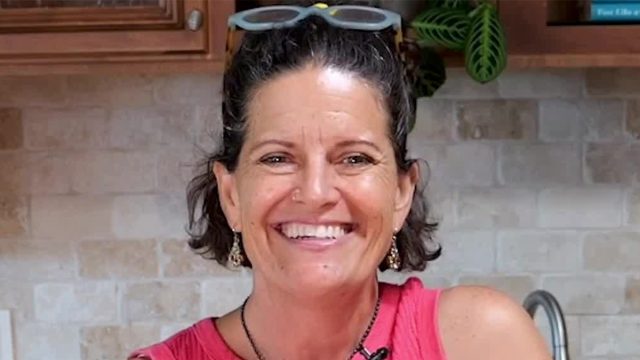This Guru Doctor Reveals 8 Hormone Mistakes Making You Gain Weight After 40
Are you fighting an unexplained weight gain after 40? You're not alone. According to renowned women's health expert Dr. Mindy Pelz, speaking with Marie Forleo (#1 New York Times bestselling author of Everything is Figureoutable), many women are making critical hormone mistakes that sabotage their metabolism. "Women as a whole, we are massively dysregulated right now. Our metabolic system is dysregulated. Our nervous system is dysregulated. Our hormones are dysregulated," explains Dr. Pelz.
"When my patients say, 'I went to sleep, and I woke up, and I felt like I was 20 pounds heavier,' I believe them. Because it can be a fairly rapid change if they're not doing something about it," says Dr. Monica Christmas, menopause program director at the University of Chicago Medicine.
Here are the biggest hormone mistakes women over 40 are making and how to fix them.
Mistake 1: Still Counting Calories After 40
"We're done with calories. It tells us nothing about our health. It doesn't give us any vision of good hormonal health. It is an old, outdated theory that needs to go away," Dr. Pelz says in the video. Instead of counting calories, she emphasizes blood sugar management: "Blood sugar absolutely tells you how quickly you're going to age, if you're going to store fat, if you're going to balance hormones."
Mistake 2: Not Adapting Your Diet to Age-Related Changes

"When people come to me and say, 'I've always eaten this way, and I've never gained weight,' I say to them that it doesn't matter what you always did. That doesn't fly anymore," says Dr. Christmas. She emphasizes that after 40, you must be "meticulous about what you put into your body and be diligent about the way you move your body."
RELATED: Trainer Shares 15-Minute Workout That Melts Belly Fat at Home
Mistake 3: Ignoring Hidden Obesogens in Your Food
"All fat is excess. It's not undisciplined. It's not you're a bad person, it's not your genetics," explains Dr. Pelz. She reveals a shocking truth about food chemicals: "There are chemicals that are put in our food that are literally known obesogens… it tells your stem cell… to make fat cells." Your body stores these toxins in fat cells to protect vital organs.
Mistake 4: Misunderstanding Female Hormones After 40

"Men are run by one hormone, testosterone. Women are run by three hormones – estrogen, progesterone, and testosterone. And we work off a 30-day cycle," explains Dr. Pelz. "Our three hormones all want a different lifestyle. They all react to toxins differently. They just are a little more sophisticated." This complexity increases after 40, when hormone levels begin to fluctuate more dramatically.
Mistake 5: Relying on Hormone Therapy Alone

Dr. Christmas warns that hormone therapy isn't a weight-loss solution: "Hormone therapy (HT) will not help you lose weight, nor is it indicated for weight loss. It may actually contribute to a little bloating in the midsection for some patients."
RELATED: 5 Signs Your Body May Be Lacking Vitamin D, Say Experts
Mistake 6: Fasting Incorrectly After 40

"Mistake number one is they fast too long… what ends up happening is all of a sudden we got a bunch of complaints like people's hair, they're losing their hair. Or if you fast too much, you actually metabolically can get stuck and your body starts to hold on to weight," warns Dr. Pelz. She emphasizes that women should never fast the week before their period, explaining that "progesterone is like, 'girl, give me a cookie, give me some chocolate. Sit your ass down, and then I'll give you a menstrual cycle.'"
Mistake 7: Eating at the Wrong Times
"When melatonin goes high, you actually become more insulin resistant," explains Dr. Pelz. This means eating late at night can lead to increased fat storage, especially after 40. She recommends waiting an hour after waking before eating breakfast, as "cortisol was meant to make you move" and can affect insulin sensitivity in the morning.
Mistake 8: Following an Unbalanced Exercise Routine

"You can't exercise your way out of a bad diet and you can't eat your way out of no exercise. It's got to be a combination of both. Especially in midlife and beyond," emphasizes Dr. Christmas. She recommends 150 minutes of moderate-intensity physical activity and two days of muscle strengthening per week for women over 40.
RELATED: Fitness Influencer Shares His Bodybuilding Secrets and Flexes His Biceps
The Solution: A Complete Hormone Reset After 40

The solution combines several key strategies:
- Choose nature's carbs: "A good carb is one that the earth provided us, and a bad carb is most likely one that humans made for us," Dr. Pelz explains.
- Feed your gut microbiome: "There are bacteria, good bacteria in your gut that sends your brain signals that says, 'feed me,'" says Dr. Pelz.
- Follow a Mediterranean diet: Dr. Christmas recommends this approach as it "has been shown to lower the risk of cardiovascular disease, metabolic syndrome, osteoporosis, dementia and certain cancers."
- Support natural detox: "When we're shedding every month, we're actually detoxing," Dr. Pelz reveals, noting the importance of maintaining healthy cycles as long as possible.
RELATED: 6 Ways to Boost Your Fitness with Bananas, Says Nutritionist
The Last Word
The bottom line? While hormonal changes after 40 are inevitable, weight gain doesn't have to be. By avoiding these common mistakes and implementing targeted strategies for diet and exercise, you can maintain your health and vitality through every hormonal transition. And if you enjoyed this article, take advantage of these 15 Quick Ways to Lose Body Fat Percentage in a Week.





